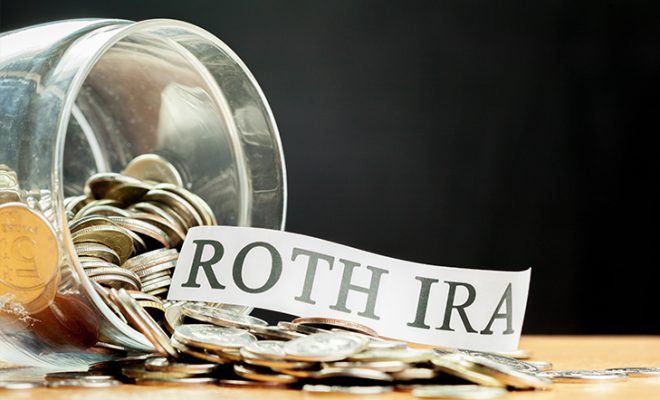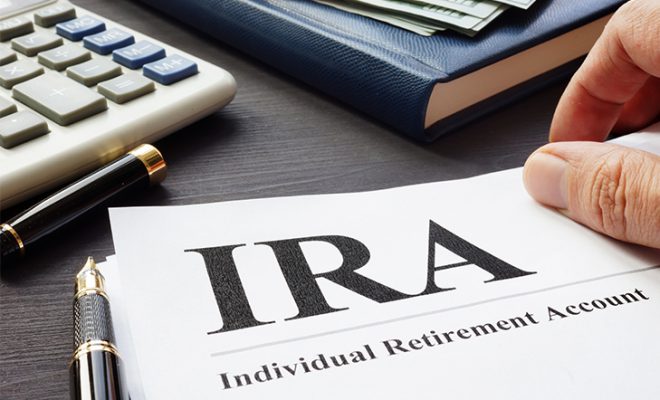Things to Know If You Are Planning an Early Withdrawal from Your Roth IRA

An Individual Retirement Account (IRA) is designed as a tax-deferred investment option to earmark funds for retirement. There are several types of IRAs, for example, a traditional and a Roth IRA for individual taxpayers, or a SIMPLE and a SEP IRA for small business owners.All of these accounts follow a fixed set of rules for contributions and withdrawals. For example, in some cases, early withdrawals can be penalized, while in others, they can be taxed as regular income. The main question, however, would be to understand how early withdrawals affect a Roth IRA.
Table of Contents
Roth IRA
Named after William Roth, a former senator of Delaware, Roth IRAs are considered a more flexible alternative to traditional IRAs. These investment options are tax-advantaged plans that allow you to withdraw your savings tax-free. The feature that distinguishes a Roth IRA from a traditional IRA is the way in which their contributions and withdrawals are taxed. In a traditional IRA, you get a tax deduction on your contributions, while your withdrawals are taxed as normal income. On the other hand, the contributions in a Roth IRA are taxed, but withdrawals are tax-free. It is a better choice for people who believe their taxes would be higher in retirement than they are now.
Qualifications for Withdrawal from Roth IRA
Tax-free withdrawals from a Roth IRA, are subjected to two conditions:
- If you are over the age of 59½ and your account is at least 5 years old, you can make tax-free withdrawals from your Roth IRA.
- Your funds can only be withdrawn without penalty or tax, if it is for the purpose of qualified distributions. This can include buying a house for the first time, or covering college education expenses, etc.
As long as you abide by these rules, your withdrawals from a Roth IRAs will be free from tax and penalties. But should you be opting for this method to meet your expenses every now and then? Let us find out the pros and cons of the same.
Pros of Early Withdrawal from Roth IRA
1. You can withdraw with ease
Since you have already paid taxes on your contributions, you can withdraw money from your account, any time you like. However, this rule applies only to your contributions, i.e., the money that you have invested. The rules and regulations for your earnings may be different depending on the situation.
2. You can avoid the penalty with exceptions
Typically, you would incur a penalty if you make a withdrawal before the age of 59½, or 5 years before your first contributions. But there are certain exceptions to the rule, such as:
(a) A first-time home purchase
(b)Covering costs associated to a permanent disability
(c) Qualified educational expenses
(d) Other medical expenses, etc.
3. It can be used as an emergency fund
Experts suggest keeping six months of expenses in cash or other liquid assets for unforeseen emergencies. Retirement accounts such as a Roth IRA, acts act as a great alternative to an emergency fund in times of crisis, as the money can be drawn out tax-free.
4. It helps you stay away from debt
Interest rates charged by lenders are usually very high and can make you debt-ridden. The cost of a loan can also be challenging for those who do not have a good credit score. A Roth IRA can be used as an alternative to a loan.
Cons of Early Withdrawal from Roth IRA
1. You could be penalized
If your withdrawals do not meet the requirements, you may have to pay a 10% penalty. Even with exceptions, you may still have to pay tax. For instance, if you do not meet the 5-year rule and withdraw funds before you turn 59½, you could avoid the penalty with exceptions, but will still have to pay taxes.
2. You have limited time to repay
Any withdrawal has a time period of 60 days in which it can be deposited back into the account, after which it would attract tax and penalty.
3. It could deplete your retirement savings
If you are not able to redeposit the money, you would miss out on your future earnings. The beauty of Roth IRA, or any retirement plan for that matter, is the power of compounding. The lump-sum amount can garner huge interests, and an early withdrawal can lead to underutilization of proper compounding.
To sum it up
A Roth IRA can be seen as a more flexible option compared to its traditional counterpart. It provides tax-free withdrawals that can be used for various types of expenses. But it should only be used if you have exhausted all other avenues of funds, as this may leave you with inadequate funds for your retirement. If you decide to withdraw from your Roth IRA, make sure you meet the rules to avoid paying the 10% penalty. You can also consider using a 401(k) plan as an alternative, as it provides the option to take out money as a loan for emergencies.
Before you finalize on withdrawing your funds, talk to a financial advisor to understand the minute details of how this may affect your other financial goals.

















